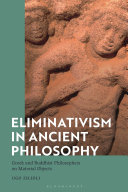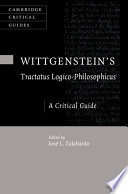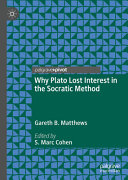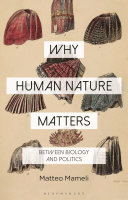Eliminativism in Ancient Philosophy: Greek and Buddhist Philosophers on Material Objects
A comparative investigation in the metaphysics of material objects and persons in ancient philosophy, this book provides radically new insights into key themes and areas of ancient thought by drawing on Greek and Buddhist philosophies.Ugo Zilioli explicates the neglected tradition of philosophers who in different ways made material objects either redundant or ontologically dispensable in the ancient world. At the same time, while eliminating objects from the material apparatus of the world, some of those philosophers conceived of selves and persons as the only truly existing items. Chapters cover concepts such as nihilism, elusive objects and the emergence of the self, demonstrating how the philosophy of major thinkers Protogoras, Vasubandhu, Gorgias, Nagarjuna, Democritus, Pyrrho, Epicurus and the Cyrenaics advance our understanding of eliminativism.Zilioli's historical and philosophical reconstruction challenges traditional readings of key moments and figures in the history of thought, both Eastern and Western, as well as providing conceptual tools that are of interest not only to historians of philosophy but also to contemporary metaphysicians.
Looking for a high-quality, original digital edition of
Eliminativism in Ancient Philosophy: Greek and Buddhist Philosophers on Material Objects
? This official electronic version is published by
Bloomsbury Academic
and offers a seamless reading experience, perfect for professionals, students, and enthusiasts in
Religion and Philosophy.
Unlike EPUB files, this is the authentic digital edition with complete formatting, images, and original content as intended by the author .
Enjoy the convenience of digital reading without compromising on quality. Order Eliminativism in Ancient Philosophy: Greek and Buddhist Philosophers on Material Objects today and get instant access to this essential book!












0 Comments